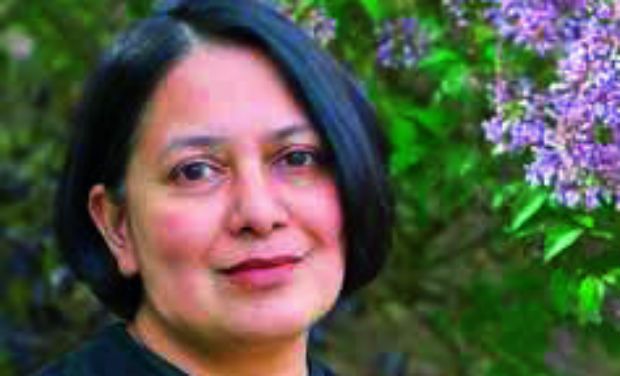LONDON: Sunetra Gupta, an India-born chemist and physicist has joined the big league of female scientists like Marie Curie in a first-of-its-kind art exhibition at the prestigious Royal Society here.
Gupta, who was born in Kolkata and is now a professor at Oxford University, is among an exclusive group as part of the “Women in Science Portrait Exhibition” of the greatest female fellows of the Royal Society together with newly-commissioned drawings featuring Royal Society Research Fellows.
“It is a great honour to have my portrait included in this show,” said Gupta, a professor of theoretical epidemiology at the University of Oxford’s department of zoology, working on infectious diseases.
Her main area of interest is the evolution of diversity in pathogens, with particular reference to the infectious disease agents that are responsible for malaria, influenza and bacterial meningitis.
“The position of women in science is being increasingly viewed as a rational problem requiring scientific methodologies to understand and improve, and I am happy to be part of such a project,” she said.
She has a parallel career as a novelist as well and has written five acclaimed novels.
Gupta grew up in Calcutta of the 1970s and 80s and wrote her first works of fiction in Bengali. She is also an accomplished translator of the poetry by Rabindranath Tagore.
“Sunetra’s childhood and her family’s peripatetic lifestyle have had a great impact on her work, her early years were spent moving between Ethiopia, Zambia and England” said the Royal Society.
“When she was 11, the family returned to Calcutta, a city which continues to inspire her writing,” it said in reference to the writer-scientist behind acclaimed works such as “Moonlight into Marzipan” and “The Glassblower’s Breath”.
Her fifth novel, “So Good in Black”, was published in 2009 the same year in which she won the Royal Society Rosalind Franklin Award for her scientific achievements.
The Royal Society display uses portraits by a range of artists to celebrate a few of the leading women in science titled — “does it make a difference?” including nutritionist Elsie Widdowson, astro-biologist Zita Martins among others.
The show has been curated by Uta Frith, a leading British developmental psychologist.
“Women in science have an image problem. It is not so much deciding whether they should aspire to the hard image of being a scientist or the soft image of being feminine, it is the more serious problem of invisibility,” Frith said.
“This exhibition, part of the Royal Society’s Summer Science Exhibition and one of the many activities it is undertaking to promote and increase diversity both at the society and within the scientific community, includes loans of works and, for the first time, commissioned drawings,” she added.

